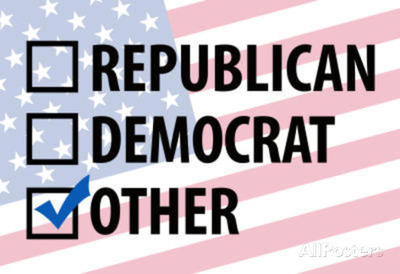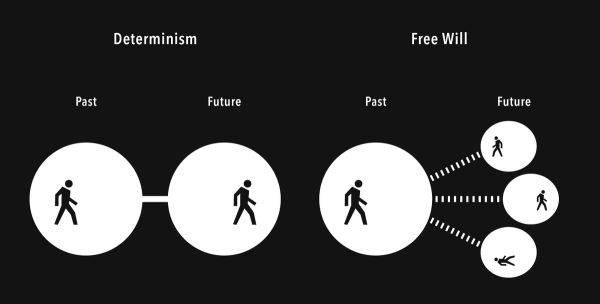In 2020, the Two-Party Duopoly is Alive and Well

Photo Courtesy WYPR
In the modern United States, third party candidates have had very little success in presidential elections. Since 1944, only two third party candidates have received 10% or more of the popular vote. Before the 2020 presidential election, supporters of Republican incumbent Donald Trump and Democrat nominee Joe Biden vehemently opposed voting for third parties, claiming that third parties would “steal” votes that rightfully belonged to Trump or Biden. The idea that third parties steal votes from major parties is not only factually incorrect, but it harms movements from third parties that propose actual change to the government of the United States.
There are a variety of factors that contribute to the lack of third party success in the United States. One of the more prominent factors is the lack of third party representation on the presidential debate stage. The Commission on Presidential Debates (CPD), established in 1987 with support from both the Democratic and Republican parties, has been the primary sponsor of presidential debates since 1988. In order for a candidate to reach the debate stage, the candidate must poll at 15% across five national polls, a percentage that is unattainable for many third party candidates due to the lack of media coverage they receive (inadequate media coverage is another obstacle that third party candidates face).
Although lack of debate representation is a key reason behind lack of third party success, it is not a problem unique to the 2020 presidential election. In various states, the Democratic Party worked hard to remove the Green Party candidate Howie Hawkins from presidential ballots. The Green Party is one of the two most prominent third parties (the other being the Libertarian Party) in the United States. The Green Party’s platform is based on eco-socialism, which attracts plenty of progressive voters, causing the Democratic Party to see the Green Party as a threat. Democrats were concerned that the Hawkins would steal votes from Democrat Joe Biden, leading them to sue the states of Texas and Pennsylvania to remove the Green Party from the ballot. In Pennsylvania, where Green Party candidate Jill Stein just under 50,000 votes in 2016 (Democrat Hillary Clinton lost to Donald Trump by a margin of about 44,000 votes in 2016), the Democrats sued the state to remove Hawkins and running mate Angela Walker from the ballots, citing clerical errors on the Green Party candidates’ end. The Supreme Court of Pennsylvania ruled in favor of the Democrats, ensuring that the citizens of Pennsylvania would have one less option to choose from on their ballots. Democrats in Wisconsin also won a legal battle to remove the Hawkins and Walker from Wisconsin ballots. Texas Democrats attempted to do the same, but ultimately lost their case. The idea that Americans should not have the option to vote for candidates who they feel best represent them because it threatens a candidate from a major party is extremely dangerous. It is an example of modern-day voter suppression, and the fact that a major party partakes in this kind of suppression should concern all Americans.
Both the Democratic and Republican Parties attempted to take their third party competitors off of ballots. Many Republicans have feelings toward the Libertarian Party that are similar to the feelings of the Democrats toward the Green Party. The Libertarian Party has been the most popular third party throughout recent elections. The Libertarian Party promotes free-market capitalism and extreme individual liberty, which allows the party to attract many right-wing voters who are more socially progressive. This presents the Libertarian Party as a challenger to the Republican Party, causing Republicans to be hostile toward the Libertarian Party and its voters. Following President Donald Trump’s narrow loss in Wisconsin, former governor of Wisconsin Scott Walker (a Republican) expressed his disappointment in a tweet, mentioning that at the time, Libertarian candidate Jo Jorgensen had received 38,000 votes, which would have been more than enough votes for Donald Trump to overcome the gap between himself and Biden had these votes been cast for Trump. Additionally, just as Texas Democrats had attempted to remove the Green Party from the ballot, Texas Republicans fought to remove the Libertarian Party from the ballot. They lost their legal battle, but it is clear that Republicans and Democrats both hold the same fear of third parties stealing votes from their candidates.
Although there has been growing dissatisfaction regarding America’s two-party system, there has been little indication that the two-party system will disappear any time soon. Unless major voting reform such as ranking choice voting or the abolition of the Electoral College come into play, it is safe to say that the two-party duopoly will live on.






